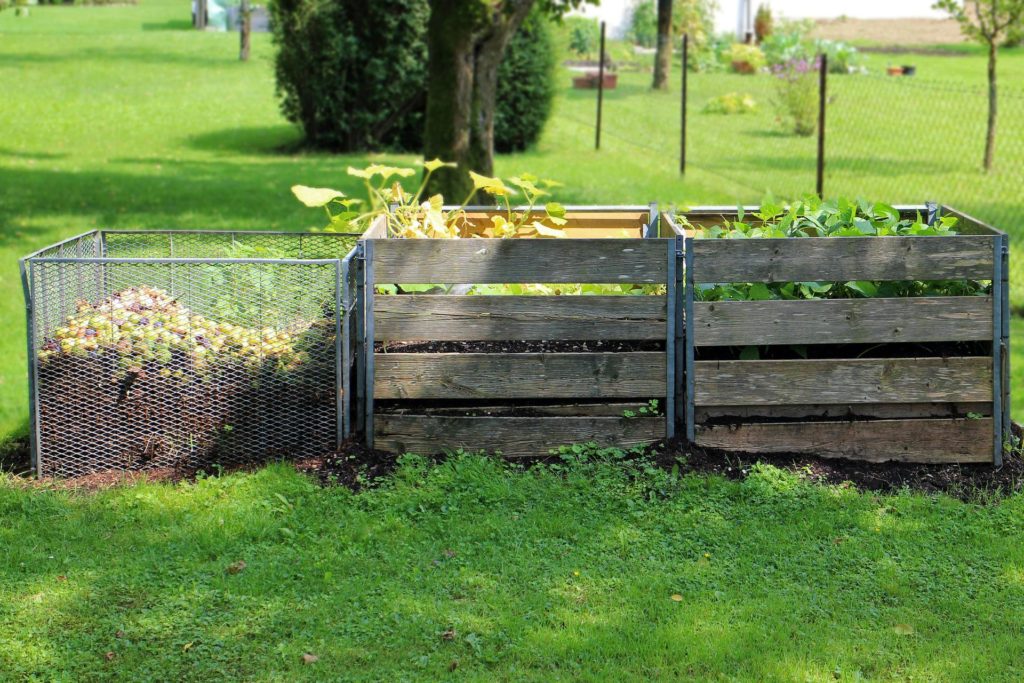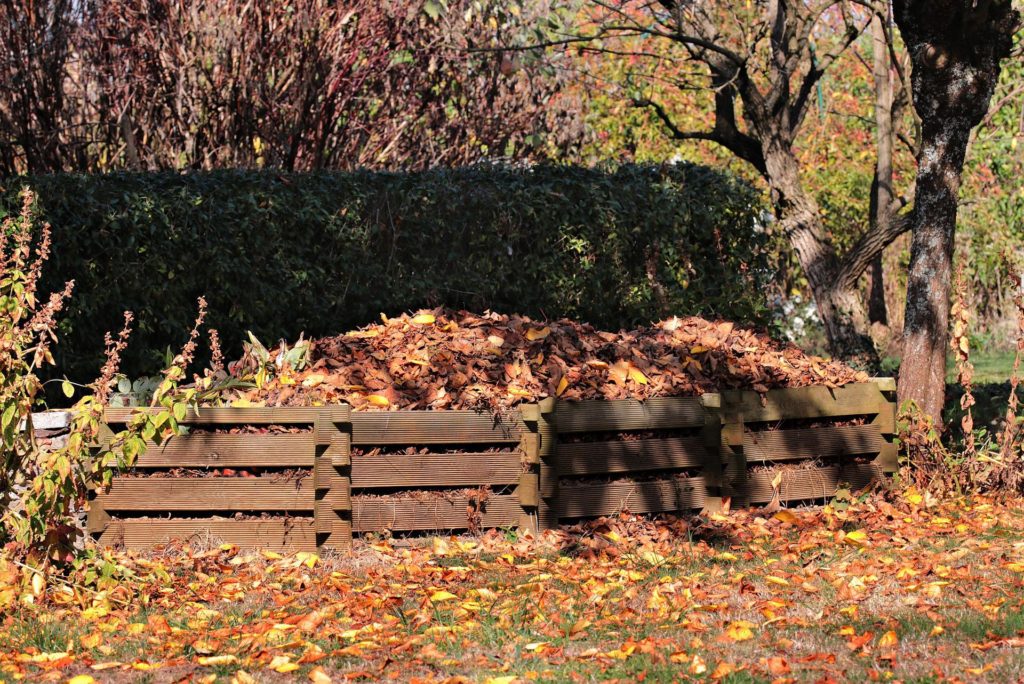Why you should try composting
Composting is not only good for the garden but good for the planet.
It is a natural process where micro-organisms, insects and earthworms decompose organic matter such as food scraps and garden waste into a type of soil material. Compost is a rich source of nutrients for your garden as it can improve soil quality, improve water retention and give you better plant growth. Composting also helps reduce the amount of rubbish you throw away, which saves you money on those yellow bags and can cut the amount of waste going into our landfills by about 35 per cent.
Methane is significantly reduced when recycling organic material rather than sending to landfill – it is 25 times more powerful than carbon dioxide.
Compost also stores carbon in the soil through photosynthesis which helps to combat climate change.
See below for some easy advice on how to set up a compost bin at your home or local school.
Home Composting

What is needed to make a good compost?
Fruit or vegetable scraps, green lawn clippings and leaves, paper, egg boxes, brown twigs, water and air.A good balance of green and brown will make good compost.
Green – high nitrogen content
- Fruit scraps
- Vegetable scraps
- Flowers
- Grass clippings
- Tea bags, leaves and coffee grounds
- Flowers
- Horse, donkey, sheep poo
Brown – High carbon content
- Tree clippings (includes small twigs broken up)
- Straw, sawdust
- Dried leaves
- Paper towels, serviettes – shredded
- Shredded paper and cardboard
- Egg shells
- Bread, grains and pasta
What should not be put in the compost?
- Meat fish or poultry
- Cooking oils
- Bones
- Weeds- they self- seed very easily
- Dairy products
- Plants treated with chemicals
- Wood
- Styrofoam
- Dog or cat waste

How to create a compost bin/area
Pick a sheltered spot which is easy to access and a level area. You can use old pallets to make up three sides and leave the front open to keep it neat. If you are pushed for space, you can get a turning compost bin that takes up very little space. The site should be within reach of a garden hose and not in direct sun. The compost bin should site directly on the ground.
Try and put a layer of tree clippings at the bottom of the bin to encourage air and create some good drainage.
Add green and brown materials in equal parts to produce the best compost (but don’t worry too much as long as there is some of both). Water the compost bin if it is dry as it needs water to work.
What about smells?
A properly built compost heap will have a small amount of odour, but it should not be unpleasant. Strong and unpleasant odours usually result from an unbalanced compost heap, such as composting grass clippings on their own, adding too many food scraps or adding the wrong types of foods. Bad odours will also occur if the heap becomes too wet or has too little air. To keep odours down, turn your compost heap each time you add material to enhance aeration and make sure not to over-water your heap.
Adding food to a compost heap makes it more attractive to pests. In urban areas, the best way to avoid pests is to use an enclosed compost bin like those offered at home and garden stores.
The decomposition process that breaks down your food scraps and garden waste into compost is faster in the warm summer months than in the winter. Make sure you cover your compost to keep out the rain.
To make things convenient for you, it is ideal to have a small kitchen bin to store food scraps as they are produced. When the bin is full, you can transfer the food scraps to your compost bin outside. Ideas for kitchen bins include 10 litre buckets, used ice cream containers, old plastic containers or small rubbish bins.
To keep odours down, it is preferable to have a lid and to line your kitchen bin with newspaper. The newspaper can be thrown into the compost bin after each empty. Make sure you only place acceptable food scraps in your kitchen bin.
How long does it take?
It takes a while for compost to mature. Turning the compost will speed up the process and it should take around three to four months if the compost is regularly turned. If the compost is not turned, it should take up to nine months to a year for the compost to mature.
Make sure to check the moisture content of the compost and add water to the heap if the material is dry. The compost should have a moisture level similar to a squeezed-out sponge. Ideally, the finished product should look like potting mix, but your compost does not have to be perfect. As long as most of the material is broken down (eggshells will not completely disappear) and you have material with a soil-like structure, your compost is ready to add to your garden.
You can use your compost at any time of the year. Early spring is a good time to add compost to your garden to help boost soil fertility, soil moisture retention and plant growth. The compost should be mixed into the top 5-10cm of your garden soil. If your compost is quite coarse, you might want to pick out some of the branches to make it finer.




